Updates - late afternoon / Evening tweets .... Always ( FWIW )
http://www.zerohedge.com/news/2014-06-16/obama-considers-special-boots-ground-forces-iraq-explosions-rock-baghdad-airport
http://rudaw.net/english/kurdistan/160620147

http://www.zerohedge.com/news/2014-06-16/us-amphibious-warship-550-marines-enters-persian-gulf
http://www.theguardian.com/world/2014/jun/15/iraq-isis-arrest-jihadists-wealth-power
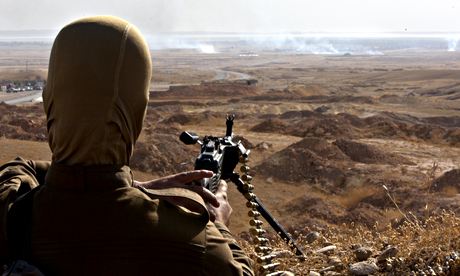
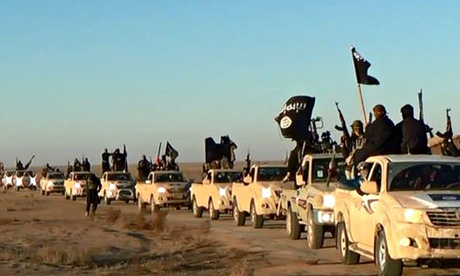 Isis fighters, pictured on a militant website verified by AP. Photograph: AP
Isis fighters, pictured on a militant website verified by AP. Photograph: AP
http://www.dw.de/tensions-rise-in-baghdad-as-isis-advances/a-17707597
http://www.zerohedge.com/news/2014-06-15/us-orders-partial-evacuation-baghdad-embassy-aircraft-carrier-arrives-gulf
http://rudaw.net/english/interview/16062014


http://rudaw.net/english/kurdistan/150620143

Twitchy....
Tweets from Mark....
From 6/16......
Tweets from 6/15 .....
Tweets from Rami ( FWIW ) ........
The officials spoke on condition of anonymity because they were not authorized to speak to reporters. Tal Afar is mainly inhabited by Turkmen, an ethnic minority.
*****

Tupac analogy ...
1) Girlfriend = gun , missiles , weapons of war
2) Lost in the whirlwind - jihadist goal of ISIS establishing an Islamic State in Iraq , Syria and the Levant
3) derogatory language = Shi'a , non believers of their Wahhabi influenced islamic perspective and beliefs
Iraqi rebels have occupied most of al-Taji military base (north of Baghdad) #Iraq
Heavy fighting near Baghdad International Airport #Iraq
Iraqi rebels have occupied 3 more areas in Baqubah #Iraq
Iraqi rebels control the old road between Fallujah and Baghdad #Iraq
Our reporters in Baghdad say 2 big explosions have rocked Baghdad International Airport #Iraq
Iraqi rebels are about to occupy a military base in Balad #Iraq
Iraqi rebels near Diyala university #Iraq
Iraqi rebels have occupied 2 neighborhoods (al-Katoun and al-Rahmah) in Baqubah city #Iraq
A big war is happening now in Baqubah city. Our reporter says the internet has been shut down #Iraq
Iraqi rebels have besieged the 20th Brigade's headquarters in Diyala #Iraq
Iraqi rebels have seized an airport in Muqdadiyya #Iraq
http://www.zerohedge.com/news/2014-06-16/obama-considers-special-boots-ground-forces-iraq-explosions-rock-baghdad-airport
Obama Considers Special "Boots On The Ground" Forces In Iraq As Explosions Rock Baghdad Airport
Submitted by Tyler Durden on 06/16/2014 16:40 -0400
UPDATE: Moar 'boots on the ground' - U.S. TO DEPLOY UP TO ABOUT 275 ARMED FORCES PERSONNEL TO IRAQ
If you like your boots on the ground, you can keep them - as long as they are Special Forces boots. Following promises that there would be no American "combat" 'boots on the ground', AP reports that President Obama is considering sending a small number of special forces to help the government in Baghdad. According to the official rules of "boots-on-the-ground"-edness, CIA and Special Forces do not count so 'officially' no promises have been broken. It's not clear how quickly the special forces could arrivein Iraq; or whether they would remain in Baghdad or be sent to the nation's north. With rumors of explosions rocking Baghdad airport, we suspect the former.
The White House is considering sending a small number of American special forces soldiers to Iraq in an urgent attempt to help the government in Baghdad slow the nation's rampant Sunni insurgency, U.S. officials said Monday.While President Barack Obama has explicitly ruled out putting U.S. troops into direct combat in Iraq, the plan under consideration suggests he would be willing to send Americans into a collapsing security situation for training and other purposes....It's not clear how quickly the special forces could arrive in Iraq. It's also unknown whether they would remain in Baghdad or be sent to the nation's north.
But The White House is being very careful to exaplin that this is not "real" boots on the ground...
White House spokeswoman Caitlin Hayden said no combat troops would be sent to Iraq, but that the U.S. is looking at other options."The president was very clear that we will not be sending U.S. troops back into combat in Iraq," Hayden said in a statement. "That remains the case and he has asked his national security team to prepare a range of other options that could help support Iraqi security forces."
Just special ones...
The mission almost certainly would be small: one U.S. official said it could be up to 100 special forces soldiers. It also could be authorized only as an advising and training mission — meaning the soldiers would work closely with Iraqi forces that are fighting the insurgency but not officially be considered as combat troops.The troops would fall under the authority of the U.S. ambassador and would not be authorized to engage in combat, another U.S. official said. Their mission is "non-operational training" of both regular and counter terrorism units, which the military has interpreted to mean training on military bases, not in the field, the official said....Already, about 100 Marines and Army soldiers have been sent to Baghdad to help with embassy security, according to a U.S. official.
Obama made the end of the war in Iraq one of his signature campaign issues, and has touted the U.S. military withdrawal in December 2011 as one of his top foreign policy successes.
Mission Accomplished...
http://rudaw.net/english/kurdistan/160620147

This new reality on the ground leaves the country’s Kurds, who see both perils -- but also opportunities -- in the mayhem, with hard choices to make. Photo: AP
So far, the Kurds of Iraq are seen as the only true winners of the mayhem that erupted in the country last week. But with the Sunni insurgency fortified in neighboring areas, how will the Kurds adjust themselves and what options do they have?
SULAIMANI, Kurdistan Region - Despite the Iraqi army’s aerial raid on jihadist bases in and around Mosul, there are so far no clear signs of retreat for the array of insurgents who have seized much of Iraq’s Sunni-populated territories.
Families who fled Mosul earlier last week are slowly returning to the fallen city, which is now managed by a cocktail of “radical and moderate” rebellious Sunni factions. Some reports suggest that the insurgency is run only in part by the petrifying gunmen of the Islamic State of Iraq and Syria (ISIS). The bulk of the insurgency has been characterized as a “revolt” by the Sunni minority of a Shiite-led country.
This new reality on the ground leaves the country’s Kurds, who see both perils -- but also opportunities -- in the mayhem, with hard choices to make.
A clear majority of Kurds, although unmistakably not part of the bloody sectarian battle between Sunnis and Shiites, identify themselves as Sunnis. But since the fall of the former regime in 2003, Kurds have effectively been in government coalitions with the country’s Shiites, who would unlikely be able to govern Iraq without the direct blessing of the powerful Kurdish factions in the north.
With the Sunnis strengthening their roots in the bordering areas through insurgency, Kurdish political parties have followed the events with a watchful eye, leaving all options open.
“If the Sunni insurgents become a reality in these areas, we have to come to terms with them, or at least, we should then see them as a new force,” says Arif Taifour, a senior member of the Kurdistan Democratic Party (KDP), the largest Kurdish party.
But the general mood among Kurds is still very hostile towards ISIS militants.
“This is a terrorist organization. Kurds have historically been victims of terrorism, this is why we see ISIS as a terrorist group and should fight against them,” says Saadi Pira, a senior member of the Patriotic Union of Kurdistan (PUK), another major Kurdish party.
There have been no major clashes so far between the insurgents and Kurdish forces. ISIS’s main goal has been to push the Iraqi army as far back into the Shiite regions as possible. Sunni insurgents have publically not been critical of the Peshmarga’s march on the disputed territories -- at least for now.
“It would be a mistake to fight the ISIS at this stage,” says Taifour, who is also Iraq’s deputy parliament speaker. “We should defend our own Kurdish territories outside the Kurdistan Region and not become part of the religious fight in Iraq,” he cautions.
But he believes that “sooner or later” the jihadists will turn their guns against the Kurds. “We should not give them the benefit of the doubt.”
“The insurgents take different shapes, but share the same values. They do not negotiate, but spread terror among defenseless people.”
Taifour says that ISIS would “harm” the Kurdish cause, if given the chance. “Kurds should move carefully not to give them the reason to destabilize our region.”
“It is not just about the ISIS. Every other Sunni group, including the former Baathists, are with the insurgents as well,” Taifour explains.
The Kurdish Islamic parties have similar views. They prefer a “wait and see” policy to an open war against the militants.
“The ISIS and other Sunni factions will either be pushed out of Mosul by the Iraqi army, or stay there and make sure Iraq is divided into three states,” says a senior member of the Islamic Union of Kurdistan, Aboubakr Haladni.
“This is why we should be prepared for every possibility, but should not take part in any wars at the moment.”
Similar views are expressed by Kurdistan’s other Islamic parties.
The stakes for neighboring countries are high as well.
Iran has publically condemned the insurgency and declared its support for the Shiite-led government of Prime Minister Nouri al Maliki. Reliable Sources tellRudaw that an Iranian delegation arrived in the Kurdistan Region last week to talk the Kurds into military action against the jihadists.
On Monday, Kurdish Prime Minister Nechirvan Barzani was discussing the turmoil in Iraq with Iran’s top military officials, according to Iranian media reports.
Sources tell Rudaw that Maliki has also urged the PUK for assistance in an onslaught against the militant Islamists. So far, the KDP has rejected any collaboration with Baghdad. Kurdistan President Massoud Barzani, who is also head of the KDP, has stated that he wants to rally support for a united Kurdish front.
“We have paid a heavy price in the past by supporting Maliki. Iran clearly would like us to engage in war against the insurgents,” KDP’s Taifour said. “But we do not see it as strategically sound for our cause.”
http://www.zerohedge.com/news/2014-06-16/us-amphibious-warship-550-marines-enters-persian-gulf
US Amphibious Warship With 550 Marines Enters Persian Gulf
Submitted by Tyler Durden on 06/16/2014 08:09 -0400
Following the arrival of the US aircraft carrier CVN-77, the ironically named George H.W. Bush, in the Persian Gulf, another US warship, LPD-19, the USS Mesa Verde also entered the Persian Gulf moments ago.
Its cargo: some 550 US marines.
Mesa Verda has entered the Gulf to "provide the commander-in-chief additional options to protect American citizens and interests in Iraq, should he choose to use them." Pentagon Press Secretary Rear Adm. John Kirby said in a statement.
"USS Mesa Verde is capable of conducting a variety of quick reaction and crisis response operations. The ship carries a complement of MV-22 Osprey tilt-rotor aircraft." He said.
As CNN reported earlier, this comes after President Obama ruled out sending ground troops to the militant-assaulted country. The USS Mesa Verde is a San Antonio-class amphibious transport dock, a ship designed to carry an expeditionary force across the sea and deploy landing craft and helicopters.
Will the marines be offloaded in Iraq? Surely not: after all Obama, rushing to catch AF1 to Palm Spring last week said he didn’t intend to send ground troops to Iraq again, two years after pulling out American troops from the country. And Obama never lies about stuff like that.
http://www.theguardian.com/world/2014/jun/15/iraq-isis-arrest-jihadists-wealth-power
How an arrest in Iraq revealed Isis's $2bn jihadist network
Seizure of 160 computer flash sticks revealed the inside story of Isis, the band of militants that came from nowhere with nothing to having Syrian oil fields and control of Iraq's second city

Members of the Kurdish armed fighting force look out over Jalula in northern Iraq, where they have been fighting Isis. Photograph: Rick Findler
Two days before Mosul fell to the Islamic insurgent group Isis (the Islamic State in Iraq and the Levant), Iraqi commanders stood eyeballing its most trusted messenger. The man, known within the extremist group as Abu Hajjar, had finally cracked after a fortnight of interrogation and given up the head of Isis's military council.
"He said to us, 'you don't realise what you have done'," an intelligence official recalled. "Then he said: 'Mosul will be an inferno this week'.'
Several hours later, the man he had served as a courier and been attempting to protect, Abdulrahman al-Bilawi, lay dead in his hideout near Mosul. From the home of the dead man and the captive, Iraqi forces hoovered up more than 160 computer flash sticks which contained the most detailed information yet known about the terror group.
The treasure trove included names and noms de guerre of all foreign fighters, senior leaders and their code words, initials of sources inside ministries and full accounts of the group's finances.
"We were all amazed and so were the Americans," a senior intelligence official told the Guardian. "None of us had known most of this information."
Officials, including CIA officers, were still decrypting and analysing the flash sticks when Abu Hajjar's prophecy was realised. Isis swept through much of northern and central Iraq over three stunning days, seizing control of Mosul and Tikrit and threatening Kirkuk as three divisions of the Iraqi army shed their uniforms and fled.
The capitulation of the military and the rapid advances of the insurgents have dramatically changed the balance of power in Iraq, crippled prime minister Nouri al-Maliki, allowed Kurdish forces to seize control of the disputed city of Kirkuk and galvanised a Shia fightback along sectarian lines, posing a serious threat to the region's fragile geopolitics. On Sunday Isis published photographs that appeared to show it capturing and killing dozens of Iraqi soldiers.
"By the end of the week, we soon realised that we had to do some accounting for them," said the official flippantly. "Before Mosul, their total cash and assets were $875m [£515m]. Afterwards, with the money they robbed from banks and the value of the military supplies they looted, they could add another $1.5bn to that."
 Isis fighters, pictured on a militant website verified by AP. Photograph: AP
Isis fighters, pictured on a militant website verified by AP. Photograph: AP
Laid bare were a series of staggering numbers that would be the pride of any major enterprise, let alone an organisation that was a startup three years ago.
The group's leaders had been meticulously chosen. Many of those who reported to the top tier – all battle-hardened veterans of the insurgency against US forces nearly a decade ago – did not know the names of their colleagues. The strategic acumen of Isis was impressive – so too its attention to detail. "They had itemised everything," the source said. "Down to the smallest detail."
Over the past year, foreign intelligence officials had learned that Isis secured massive cashflows from the oilfields of eastern Syria, which it had commandeered in late 2012, and some of which it had sold back to the Syrian regime. It was also known to have reaped windfalls from smuggling all manner of raw materials pillaged from the crumbling state, as well as priceless antiquities from archaeological digs.
But here before them in extraordinary detail were accounts that would have breezed past forensic accountants, giving a full reckoning of a war effort. It soon became clear that in less than three years, Isis had grown from a ragtag band of extremists to perhaps the most cash-rich and capable terror group in the world.
"They had taken $36m from al-Nabuk alone [an area in the Qalamoun mountains west of Damascus]. The antiquities there are up to 8,000 years old," the intelligence official said. "Before this, the western officials had been asking us where they had gotten some of their money from, $50,000 here, or $20,000 there. It was peanuts. Now they know and we know. They had done this all themselves. There was no state actor at all behind them, which we had long known. They don't need one."
The scale of Isis's resources seems to have prepared it for the improbable. But even by its ruthless standards, occupying two major cities in Iraq in three days, holding on to parts of Falluja and Ramadi, and menacing Kirkuk and Samara, was quite an accomplishment.
Social media postings throughout last week revealed the group's shock at its successes. Some posting showed extremists weeping with joy as dozens of Iraqi army humvess were driven through a sand berm on the border into Syria.
Foreign jihadists, many from Europe, were among those who stormed into Mosul and have spread through central Iraq ever since. Most of their names were already known to the intelligence agencies which had tried to track their movements after they arrived in Turkey, then disappeared, initially across the Syrian border. But noms de guerre given to the new arrivals had left their trails cold. Now officials had details of next of kin, and often phone numbers and emails.
Whether the intelligence haul can do much to reel in Isis after the fact seems a moot point, with the group having already wrought so much carnage in such a short time. "We will eventually find them," said the Iraqi official. "We knew they had infiltrated the ministries and the most frustrating thing about that flash [stick] was it only had initials. We are focusing on the initials that had the annotation 'valuable' next to them."
Other names were clearly of lesser use, he said. They were marked with "lazy", "undecided" or "needs monitoring".
More than ever before is now known about how Isis has gathered steam. The past week has also been an advanced education in its capabilities and ambitions. "Now we have to catch up with them," the official said.
http://www.dw.de/tensions-rise-in-baghdad-as-isis-advances/a-17707597
IRAQ
Tensions rise in Baghdad as ISIS advances
Leaders in Baghdad are on edge as ISIS insurgents near the Iraqi capital. Fearing an outbreak of sectarian violence, house raids and checkpoints on the street have increased across the city.
They came early in the morning and didn't bother knocking. Seven uniformed men strode into the house and searched it from top to bottom. Mohammed Dhia, his wife and three children had just finished eating breakfast.
Upstairs the men found an old army uniform from when Saddam Hussein was still the dictator of Iraq, but that was enough for the men to threaten to take Dhia with them. A minibus was outside waiting to take him away. It wasn't until Dhia showed his United Nations ID card that the men moved on to the house next door.
Dhia's house is in the Mansour district of the Iraqi capital, Baghdad, next to the closely watched Green Zone, where the government buildings are located. Raids are carried out in houses near the Green Zone all day. The concrete walls are high and topped with barbed wire to keep people from climbing over them. But the mood in Baghdad is tense.
Raids in Baghdad
Prime Minister Nouri al-Maliki is nervous and all 6 million people in the capital can feel it. Ever since his unsuccessful appeal to parliament to enact a state of emergency, he has been putting his own emergency plan in place. Checkpoints in Baghdad are increasing while soldiers and police patrol the streets and conduct raids on houses.
The city's Sunni neighborhoods, such as Adhamiyah, get special attention from authorities - every house is carefully searched. Dhia's neighborhood has Sunnis, Shiites and Christians, but that diversity doesn't spare its residents.
"They think there are sleeper cells of Sunni rebels that will rise up and attack when ISIS approaches," the 54-year-old Sunni said sarcastically referring to the jihadist group Islamic States of Iraq and Syria. But it is clear that Maliki's heightened security measures aren't making the prime minister any new friends.
But friends are just what the Shiite leader could use, as his Sunni countrymen outside the capital prepare a revolt against him and Iraq's central government and Islamist ISIS fighters capture cities across northern Iraq in hopes of forming an Islamic state like Saudi Arabia.
ISIS captured Iraq's second-largest city, Mosul, this week as well as Saddam Hussein's birthplace, Tikrit, and are moving toward Baghdad. Anbar province to the northwest of Baghdad has been firmly in the grip of ISIS fighters since January.
For a year, the Sunni population peacefully demonstrated for more rights, a bigger role in the political process, improved public facilities and an end to corruption. But nothing changed. Now ISIS has moved in and put Maliki's back up against the wall.
ISIS fighting a "war against all of us"
The prime minister called on Iraqis to stand up to the ISIS "terrorists," who he said were not fighting against Sunnis or Shiites but were "fighting a war against all of us." A group of fighters made up ofvolunteers and members of the Iraqi army would stop ISIS, he said.
Maliki traveled to the northern city of Samarra in a sign of unity. It is where the bombing of a Shiite mosque in 2006 set off a bloody civil war between Sunnis and Shiites. Many observers fear that conflict could reignite as ISIS fighters and equipment approach the city some 110 kilometers (68 miles) from Baghdad.
Maliki has, however, found one friend in the region: Iranian President Hassan Rouhani. He said Iran would support the Iraqi government in its fight against ISIS if requested. Exactly what form that support might take remains unclear, but the US daily "Wall Street Journal" reported that three battalions of the Quds Force, the external special forces of Iran's Revolutionary Guard, were conducting missions in Iraq. Rouhani, however, denied any Iranian troops were already there.
Though he ruled out sending ground troops to Iraq, US President Barack Obama said he would consider his options over the next few days, but in the meantime, the Defense Department ordered an aircraft carrier and a pair of a warships to the Persian Gulf on Saturday.
http://www.zerohedge.com/news/2014-06-15/us-orders-partial-evacuation-baghdad-embassy-aircraft-carrier-arrives-gulf
US Orders Partial Evacuation Of Baghdad Embassy As Aircraft Carrier Arrives In Gulf
Submitted by Tyler Durden on 06/15/2014 16:48 -0400
Earlier today we reported that despite, or rather due to, all the confusing propaganda from either side, it was not exactly clear whether and how far away from Baghdad the ISIS offensive had been halted (if at all). It appears the confusion has also impacted none other than the US State Department, which moments ago announced it would evacuate an "substantial number" of the whopping 5,500 staff situated in the US embassy in Baghdad on the banks of the Tigris river, staff which incidentally is the largest of any US embassy. Additionally, the State Dept said that some additional U.S. govt security personnel will be added to Baghdad staff as result of instability and violence in certain areas of Iraq.
According to the NYT, The exact number of people being evacuated was not clear Sunday. The embassy would remain open, a person familiar with the planning said, and much of its staff of about 5,500 would stay in Baghdad. The American government is expected to call the move a relocation, suggesting that it is a temporary precaution, the person said.
Many staff members who are leaving will be flown to Amman, Jordan, where they will continue their work at the embassy there. Not Benghazi? Oh wait, what difference does Benghazi make.
Others will be shifted from Baghdad to consulates here in Erbil, in the northern Kurdish region, and in Basra, in the south, which are not now under threat by the militants.Other Americans in Iraq, particularly contractors working for companies that had been training the Iraqi military on weapons systems purchased from the United States, have already been evacuated from the country.
President Obama, on top of things, has said he is weighing a range of actions to help the Iraqi government turn back the insurgents, including airstrikes or other military aid. For now, however, as wereported last night, he is in Palm Springs hobnobing with the local donors, and looking at potential home purchases once his second term ends - the closer to the local golf courses, the better.
And in other news, to make the evacuation as seamless as possible and as we reported last week, the aircraft carrier USS George H.W. Bush and two other U.S. Navy ships arrived in the Persian Gulf Sunday, as Iraqi troops mobilized to defend their country from a wave of Sunni insurgents taking over cities, NBC News reported. The USS George H.W. Bush was ordered to the Persian Gulf Saturday to protect American interests in the region.
Meanwhile, at least 15 people were killed and more than two-dozen were injured in explosions in Baghdad on Sunday, Iraqi police and hospital officials told the Associated Press. It was unclear if these were related to the ISIS offensive, and if, asunconfirmed reports on Twitter have suggested, ISIS advance forces have already entered the capital's neighborhoods.
http://rudaw.net/english/interview/16062014

Shaways: ‘This defeat impacts the whole situation in Iraq, and undoubtedly if the militants advance farther, they will pose a threat to Baghdad, too.’ Photo: Rudaw
Iraq’s Deputy Prime Minister Rowsch Nuri Shaways spoke to Rudaw at this critical juncture when the Iraqi Army has collapsed, Islamic militants who have captured large parts of Sunni territories are near Baghdad and the Kurdistan Region has moved in to Kurdish territories outside its borders and is in control of all of the so-called “disputed territories” over which Baghdad and Erbil have both laid claim. Shaways, a Kurd, blamed the security collapse and advance by the militants on Prime Minister Nouri al-Maliki’s refusal to work with the Kurds on security. Saying that “the threat of terrorism is very real,” he said the Iraqi government “will be making a great mistake if it is not fully prepared” for defending Baghdad. Shaways also said that Peshmerga forces what have moved into the disputed territories are likely to stay there for a very long time.
Here is an edited transcript of his interview:
Rudaw: How distressed is the Iraqi government about the ISIS attacks?
Rowsch Nuri Shaways: The ISIS attacks on Mosul and other areas have a big a impact on the situation in Iraq and caused the collapse of the army, which for a decade Iraq has been trying to build with the help of its allies. This defeat impacts the whole situation in Iraq, and undoubtedly if the militants advance farther, they will pose a threat to Baghdad, too.
Rudaw: Is it feared that Baghdad may fall into their hands?
Rowsch Nuri Shaways: The threat of terrorism is very serious.
Rudaw: Is Iraq prepared to defend Baghdad?
Rowsch Nuri Shaways: It will be making a great mistake if it is not fully prepared.
Rudaw: Why do you think the Iraqi army sustained that kind of collapse?
Rowsch Nuri Shaways: For many reasons: One, because the army was built on a wrong foundation, and not compatible with the constitution. Second, the army has been put in charge of security throughout Iraq without taking into account that the regions are different and you cannot compare Mosul to Karbala, for example. They have tried to keep away the Peshmerga from areas where they could defend. In the past decade the Peshmerga have fought in Fallujah, Diyala and Ramadi to defend democracy in Iraq. But through deception, slowly they pushed them away and replaced them with Iraqi troops.
Rudaw: Was this done by Maliki?
Rowsch Nuri Shaways: It is clear who is the commander-in-chief. In the disputed territories, too, the Iraqi army had come and built bases. Ninety percent of the officers in the units posted in those areas were former officers in the old army, who had been defeated in the Iran-Iraq war and the Kuwait war. An officer or an army that has been defeated cannot be given command.
Rudaw: Isn’t it the same old officers who are in charge of the army in Baghdad?
Rowsch Nuri Shaways: No, it is not the same in Baghdad. In Baghdad, there are Shiites and Sunnis, and there are some who stand by the government while some who do not. Some people will have no choice but to fight for Baghdad, because if the government fails there will be no authority. And some regional powers may also support the Iraqi government. That is why the fighting in Baghdad may be fiercer.
Rudaw: What is the percentage of Kurds in the Iraqi army?
Rowsch Nuri Shaways: There are few left in the army and federal police. In our estimate is around three percent.
Rudaw: Kurdistan Prime Minister Nechirvan Barzani said that Baghdad didn’t cooperate with the Kurds to prevent the fall of Mosul. Why didn’t they cooperate?
Rowsch Nuri Shaways: Non-cooperation is nothing new. Maliki wanted only himself to be in charge of security in Mosul. Maliki didn’t really want to work with the Kurds on this. Otherwise, the situation wouldn’t have reached this point. Maliki was convinced that they had their own security plan. But now that it has failed, they must find something new.
Rudaw: Did you ask Maliki why he wasn’t cooperating with the Kurdish government?
Rowsch Nuri Shaways: Cooperation has to be done as part of a plan and agreement. Do you think the Kurds will just go ahead and offer military support without a solid political basis?
Rudaw: What are the Kurds’ preconditions for giving help and sending in forces to those areas?
Rowsch Nuri Shaways: Everything has to be done as part of a plan agreed on by all parties in Iraq. It has to be done in genuine partnership and according to the constitution. Unless these conditions are met, I see it unlikely for Erbil and Baghdad to agree, and any cooperation would be pointless.
Rudaw: Who do you think is supporting the ISIS?
Rowsch Nuri Shaways: There are different theories. A force that moves about so strongly and with such capability must have a strong supporter. I am not accusing anyone, but Iraqi security officials say Saudi Arabia and Qatar are helping them.
Rudaw: Did they say in Baghdad that Kurds are supporting the ISIS?
Rowsch Nuri Shaways: How dare they say such a thing!
Rudaw: Peshmerga forces have moved to Kirkuk and parts of Nineveh. Will they turn back?
Rowsch Nuri Shaways: The Peshmerga are a force that defend Kurdistan and the Kurdish people, be it in Kurdistan or the disputed territories. Now that the Iraqi army has left some important areas, if they are not taken there will be a threat to Kurdistan, especially areas in Kirkuk and Nineveh that are part of Kurdistan, and it is the duty of the Peshmerga to protect them.
Rudaw: Will the Peshmerga leave those areas?
Rowsch Nuri Shaways: If the situation continues as it is, they will certainly stay longer, because an army that has faced such a big defeat will take a long time to rise. If after 10 years of training and funding the army collapsed like that, it will take at least another five years to get back to where it was. In the meantime the Peshmerga forces in those areas must be ready and not allow terrorists harm Kurdistan. Then, once the Iraqi parties have reached a political agreement, the conditions will change and it is a different story whether the Peshmerga will stay in those areas or not. If you are asking me, until Article 140 is fully implemented the Peshmerga should stay.
Rudaw: The Kurdistan Region tried to sell its oil, but under pressure from Maliki the tankers were held in Morocco? Where do Erbil and Baghdad stand on that issue now?
Rowsch Nuri Shaways: It is two different issues. The Kurdistan Region on one side and Maliki’s government with Hussein Shahristani and the Iraqi oil one the other. The Kurdish government wants to sell its oil in order to compensate for the budget that is its constitutional share. But the Iraqi government wants to control everything, and whoever has some authority is using it in that regard. The Iraqi government has relations with Morocco and told them, “don’t allow Kurdistan’s oil to be sold.” Meantime, the KRG has the right to look for businesses and countries that need energy in order to sell them the oil. That is the kind of issue we are dealing with.
Rudaw: Which policy will eventually succeed?
Rowsch Nuri Shaways: In today’s political circumstances, the KRG will succeed. It has sold oil and will sell (more). If Maliki had been the prime minister of a democratic and federal Iraq, he would have solved the issue of oil and gas a long time ago, and there are many ways to do it.
http://rudaw.net/english/kurdistan/160620144

Volunteer fighters clean their weapons following a call to arms by Shiite authorities. Photo: AFP
ERBIL, Kurdistan Region – Kurdish taxi drivers shuttling between the Kurdistan Region and Baghdad report abuse and beatings by Shiite militias and the Iraqi military because of their ethnicity, amid turmoil in Iraq as Sunni Islamic militants nearing Baghdad vow to topple the government.
Taxi drivers reported being abused and threatened by Shiite militants of the Iranian-backed Asa’ib Ahl al-Haq (League of the Righteous), and by Iraqi Army soldiers.
"I returned from Baghdad two days ago, they (Asa’ib) put a gun to my head, asking if we were Kurds,” recounted a driver from Erbil. “They told us, ‘if you ever come back, we will kill you,’ and then he started cursing us and our leaders.”
In a televised speech about the security situation in Iraq, the leader of the Asa’ib, Qais al-Khazali, blamed the current turmoil on an alleged plot hatched by the Kurds, militants of the Sunni Islamic State of Iraq and Syria (ISIS) and loyalists of Saddam Hussein’s ousted regime.
"The Kurdish leaders seized the headquarters of the army and the weapons and equipment, and took control of the disputed areas after the withdrawal of the army," the Shiite leader charged.
Other drivers told similar accounts of abuse, saying that Kurds were being abused and beaten at Iraqi Army checkpoints as well.
“Even a (Iraqi army) captain did the same to us,” said one driver. “I saw them take two drivers who were ahead of me. They started hitting them with their Ak-47s. He cursed us (Kurds) one thousand times," he added. “I went through the checkpoints, but they took the other drivers.”
Drivers reported better treatment at checkpoints of the ISIS, whose fighters together with other rebels captured Mosul last week and are now near Baghdad.
“When one goes through ISIS checkpoints, they never say anything. But the Shiites insult you very much," recounted one driver.
Shiite leaders have issued a fatwa, or religious decree, calling on followers to take up arms against the ISIS threat. In response, thousands of Shiites from Iraq’s central and southern provinces have mobilized and joined their militias.
Iraq’s Sunni leaders have denounced the Fatwa, fearing it could open the gates to a war between Iraq’s majority Shiites and very large Sunni minority.
Meanwhile al-Iraqiya TV, which is close to Iraqi Prime Minister Nouri al-Malliki’s government, has seeming embarked on an anti-Kurdish campaign, accusing Kurdish leaders of cooperating with ISIS against the government in Baghdad.
http://rudaw.net/english/kurdistan/150620143

Kurdish Peshmerga forces moved in to secure the provincial capital and protect the rural population left vulnerable to ISIS attacks. Photo: AFP
TUZ KHURMATU – The Kurdish Peshmerga said on Sunday that a security belt they have created on the southern edges of Tuz Khurmatu has prevented the militants of the Islamic State of Iraq and Syria (ISIS) from bringing their fight to the Kurdish areas.
A Peshmerga officer in the area also told Rudaw that the ISIS have contacted them by courier, saying, “If you don't attack us, we would not attack you.”
Currently, the last Peshmerga checkpoint is on the lower Zab River that stretches to the town of Dubis near the city of Kirkuk in the north.
According to information provided by the Peshmerga forces, the ISIS checkpoint is only half a kilometer away from the Kurdish forces and that via taxi drivers on the road, the militants have asked for reassurance that they will not be attacked from the north.
Rudaw correspondent in Kirkuk says that many families have fled the southern areas of the province to Kirkuk, fearing retaliation by the Iraqi army.
Some families said that their areas are already under shelling from the Iraqi forces.
As the ISIS advanced through Iraq’s Sunni areas from Mosul last week, government troops deserted their posts, leading to the fall of the city of Hawija west of Kirkuk.
Kurdish Peshmerga forces moved in to secure the provincial capital and protect the rural population left vulnerable to ISIS attacks.
According to local officials, many wounded civilians from Hawija and other ISIS-controlled areas have bee transported to Kirkuk hospitals.
Some victims told Rudaw that hospitals in Hawija are in “terrible condition” and that there is the fear of Iraqi army bombardment.
Our correspondent says that the Peshmerga and the Islamic militants engage in occasional clashes, but that the fighting remains sporadic and at a distance due to the heavy Peshmerga presence and security belt they have formed.
Twitchy....
Militants closing in on Baghdad prompts partial evacuation of US Embassy; Security increased
Tweets from Mark....
From 6/16......
#Iraq Reports: Goverment forces executed dozens of prisoners before retreat from of #TalAfar & #ISIS invade town
Retweeted by Mark
Baghdad International Airport is now a military base for al-Maliki's forces #Iraq
Retweeted by Mark
Al-Maliki's forces have executed an Imam of al-Fityan Mosque in Baghdad #Iraq
Retweeted by Mark
#Breaking Maliki's #Ninawa military commander executed by ISIS in front of thousands of locals. #Iraq
#Iraq Germany & Spain ambassadors leave Baghdad
#Iraq Reports: #ISIS take over Camp Taji in northern #Baghdad
If true, capital will fall soon
http://wikimapia.org/#lang=de&lat=33.537675&lon=44.259453&z=13&m=b …
#Iraq #ISIS claim seized aircrafts at #TalAfar airbase http://wikimapia.org/#lang=de&lat=36.285796&lon=42.418213&z=12&m=b …
Tweets from 6/15 .....
Retweeted by Mark
Iraqi rebels have occupied the headquarters of the 3rd Brigade #Iraq
#Iraq Hundreds of armed volunteers digging huge ring trench in northern #Bagdad outskirts -counter offensive?
#Iraq #Maliki commander Mohammed al-Quraishi admits to channel CNN that the government lost control of #TalAfar
#Iraq #ISIS bypass Camp Taji & take over Bour suburb at northern entrance to #Baghdad
http://wikimapia.org/#lang=de&lat=33.458656&lon=44.154739&z=13&m=b …
Tweets from Rami ( FWIW ) ........
#Maliki is reportedly running all governmental/military operations from army 17th division in #Mahmoudiyah south #Baghdad. #Iraq #ISIS
Irony after all these years & 1000s of people killed/detained by #Assad we may witness the fall of #Baghdad before #Damascus. #Iraq #Syria
Retweeted by Rami
U.S. to Evacuate Many Staff Members From Baghdad Embassy http://nyti.ms/1p7DLDn
#Alarabiya: Tribe fighters spokesperson: Our military operations toward #Baghdad have begun.. #Iraq #ISIS
#Maliki wants to drag neighbor countries into his crisis.. Army started evacuating several border points with #Jordan. #Iraq #ISIS
Retweeted by Rami
Unconfirmed reports army commander of #Ninawa 'Abu al-Walid' captured by tribe fighters along with tens of soldiers in #TalAfar. #Iraq #ISIS
Retweeted by Rami
Tribe fighters are reportedly inside #Baghdad and #Maliki still living a state of denial. #Maliki: #Mosul never fall! #Iraq #ISIS
From Al Arabiya.....
Militants post images of mass killing in Iraq
Associated Press, Baghdad
Sunday, 15 June 2014
Sunday, 15 June 2014
As the Iraqi government bolstered Baghdad’s defenses Sunday, the Islamic militant group that captured two major cities last week posted graphic photos that appeared to show its fighters massacring dozens of captured Iraqi soldiers.
The pictures on a militant website appear to show masked fighters of the Islamic State of Iraq and Syria, or ISIS, loading the captives onto flatbed trucks before forcing them to lie face-down in a shallow ditch with their arms tied behind their backs. The final images show the bodies of the captives soaked in blood after being shot.
The grisly images could further sharpen sectarian tensions as hundreds of Shiites heed a call from their most revered spiritual leader to take up arms against the Sunni militants who have swept across the north. ISIS has vowed to take the battle to Baghdad and cities further south housing revered Shiite shrines.
A car bomb meanwhile exploded in central Baghdad, killing 10 and wounding 21, according to police and hospital officials. Baghdad has seen an escalation in suicide and car bombings in recent months, mostly targeting Shiite neighborhoods or security forces.
While the city of seven million is not in any immediate danger of falling into the hands of the militants, Sunday's bombing could raise tensions. Food prices in the city have risen, twofold in some cases, because of disruption to transport on the main road heading north from the capital.
The government bolstered defenses around Baghdad Sunday, a day after hundreds of Shiite men paraded through the streets with arms in response to a call by Grand Ayatollah Ali al-Sistani for Iraqis to defend their country. ISIS has vowed to attack Baghdad but its advance to the south seems to have stalled in recent days.
Government officials said ISIS fighters were trying to capture the city of Tal Afar in northern Iraq on Sunday and raining down rockets seized last week from military arms depots. The officials said the local garrison suffered heavy casualties and the town’s main hospital was unable to cope with the number of wounded, without providing exact numbers.
The officials spoke on condition of anonymity because they were not authorized to speak to reporters. Tal Afar is mainly inhabited by Turkmen, an ethnic minority.
Iraq’s top military spokesman, Lt. Gen. Qassim al-Moussawi, confirmed that fighting was raging at Tal Afar, but indicated that the militants were suffering heavy casualties. On all fronts north of the capital, he said, a total of 297 militants have been killed in the past 24 hours.
There was no way to independently confirm his claims.
ISIS and allied Sunni militants captured a vast swath of northern Iraq last week, including second city Mosul and Saddam Hussein’s hometown of Tikrit, as Iraqi troops, many of them armed and trained by the U.S., fled in disarray, surrendering vehicles, weapons and ammunition to the powerful extremist group, which also fights in Syria.
The captions of the photos say the killings were to avenge the killing of an ISIS commander, Abdul-Rahman al-Beilawy, whose death was reported by both the government and ISIS shortly before the al-Qaeda splinter group’s lightning offensive, which has plunged Iraq into its bloodiest crisis since the withdrawal of U.S. troops in 2011.
“This is the fate that awaits the Shiites sent by Nouri to fight the Sunnis,” one caption read, apparently referring to Iraq's Shiite Prime Minister Nouri al-Maliki.
Al-Moussawi, the military spokesman, confirmed the photos’ authenticity and said he was aware of cases of mass murder of captured Iraqi soldiers in areas held by ISIS.
U.N. human rights chief Navi Pillay warned on Friday of “murder of all kinds” and other war crimes in Iraq, and said the number killed in recent days may run into the hundreds, while the wounded could approach 1,000.
Speaking in Geneva, she said her office has received reports that militants rounded up and killed Iraqi soldiers as well as 17 civilians in a single street in Mosul.
Her office also heard of “summary executions and extrajudicial killings” after ISIS militants overran Iraqi cities and towns, the statement said.
Most of the soldiers who appear in the pictures are in civilian clothes. Some are shown wearing military uniforms underneath, indicating they may have hastily disguised themselves as civilians to try to escape.
Many soldiers and policemen left their uniforms and equipment behind as the militants swept into Mosul, Tikrit and surrounding areas.
The captions did not provide a date or location, but al-Moussawi said the killings took place in Salahuddin province, the capital of which is Tikrit.
Some of the pictures appeared to show some of the soldiers pleading for their lives, others seemed terrified.
All soldiers appeared in their early 20s, with some wearing the jerseys of such European soccer clubs like Manchester United and Barcelona. Some of the militants wore black baggy pants and shirts, many of them had sandals or flip flops.
Last Update: Sunday, 15 June 2014 KSA 19:24 - GMT 16:24
US missing in action.....
http://www.zerohedge.com/news/2014-06-14/meanwhile-palm-springs
Meanwhile In Palm Springs...
Submitted by Tyler Durden on 06/14/2014 20:31 -0400
On the day in which the Ukraine civil war claims the most casualties yet, and when an Al Qaeda spin off, too extreme even for its "conservative" roots is preparing to unleash a caliphate smack in the middle of Syria and Iraq forcing the Pentagon to admit it has dispatched an aircraft carrier in advance of further escalations, it is only logical that the U.S. president, in sequence of events, is...
*****
Gruesome Footage Of ISIS Atrocities Reveals Al Qaeda Jihadists "Will Stop At Nothing"
Submitted by Tyler Durden on 06/14/2014 - 20:18
Judging by the gruesome propaganda video being released by ISIS, it is no wonder the Iraqi soldiers and police stripped off uniforms and ran... As The Daily Mail reports, blood-thirsty jihadists are carrying out summary executions on civilians, Iraqi soldiers and police officers - including 17 in one street alone - on their warpath to Baghdad, the UN said today. As a shocking picture of the ISIS insurgency continues to develop, the Islamist group are posting barbaric videos online with the intent of showing the world they will stop at nothing to achieve their end game. The aim is to terrorise Sunnis in Iraq's army and police forces and deepen their already low morale. It appears to be working as that fear is one factor behind the stunning collapse of Iraqi security forces.
Via The Daily Mail,
In one, which is too graphic to publish, fighters are seen knocking on the door of a Sunni police major in the dead of night.
When he answers, they blindfold and cuff him. Then they carve off his head with a knife in his own bedroom as sweetly lilting religious hymns are played over the top.
Shock and awe: An ISIS propaganda video shows militants blindfolding a Sunni police major in his home before cutting off his head
Shocking: Footage reportedly taken by ISIS militants shows Islamist fighters randomly shooting pedestrians and motorists as they take over towns and cities in Iraq
Armed with a machine-gun, the gang film themselves shooting cars off the road then move in to video close-ups of the victims' blood-stained bodies slumped in the seats. In another clip, they gun down a pedestrian.
Brutal , politically incorrect , hard hitting with no subtle touches , foul , inappropriate ...... Yes , ISIL / ISIS is all of those things...... But they are ushering the New Age Of the Hard Men With Guns Era ( Beta tested in Libya ) ... For some in the world , their gun is their friend , lover , mother .....It's an age we in the West will experience. Get ready......
Tupac analogy ...
1) Girlfriend = gun , missiles , weapons of war
2) Lost in the whirlwind - jihadist goal of ISIS establishing an Islamic State in Iraq , Syria and the Levant
3) derogatory language = Shi'a , non believers of their Wahhabi influenced islamic perspective and beliefs




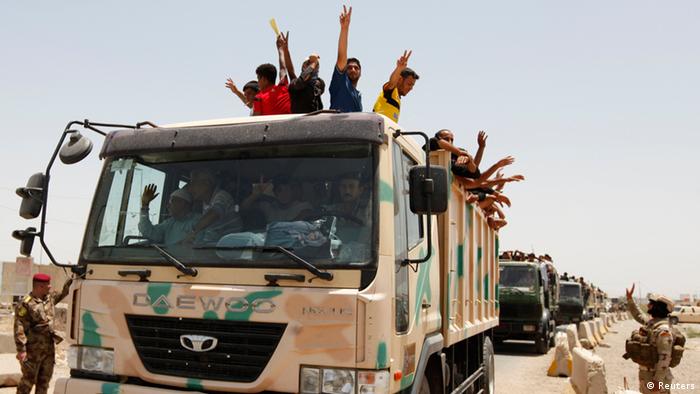
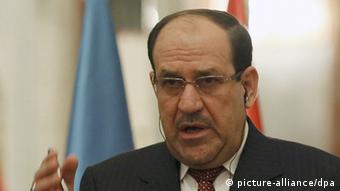
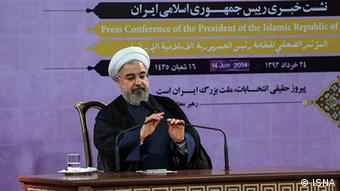











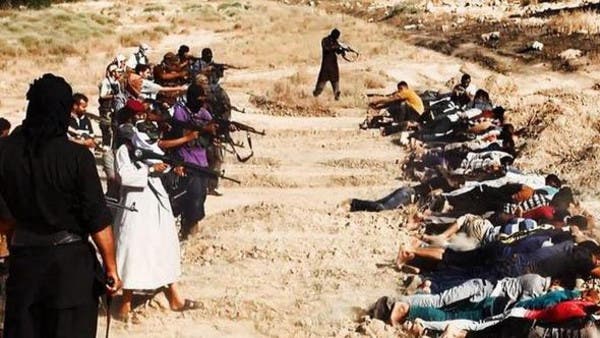
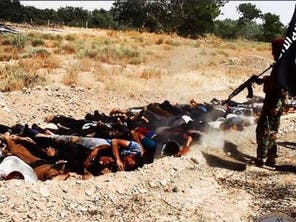
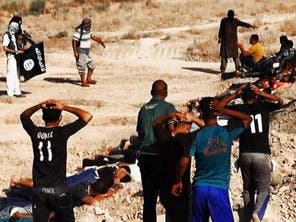
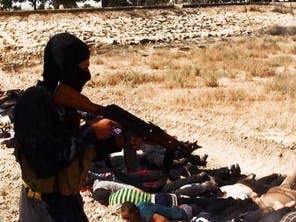
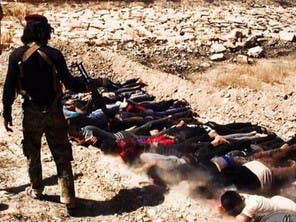




good morning guys,
ReplyDeleteLooks like a lot happening today and I had to skim the articles because I spilled a whole cup of coffee on my computer desk, good thing I drink it black or I would still be cleaning.
Hope you guys had a good Father's day, I did.
Russian tanks are rolling, about time.
Have a good one.
Morning everyone ! A beauty of a weekend and a pleasant Father's Day as well ! After telling the Opposition in Iraq that while the US wasn't going to act over the weekend , are we surprised to see the Opposition made their move this weekend to apply pressure to Baghdad ? Devil in the detail or in this case the tweets ( check for updates ) ! Ukraine gas cutoff today - EU gas supplies maintained ( for now - how long before Ukraine starts to steal the EU gas anyway - things will get interesting after the summer I reckon ?
DeleteEU will wind up paying one way or another. )
Enjoy your Monday !